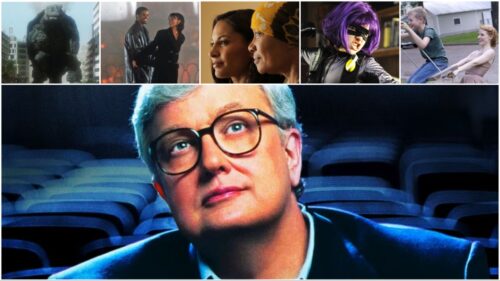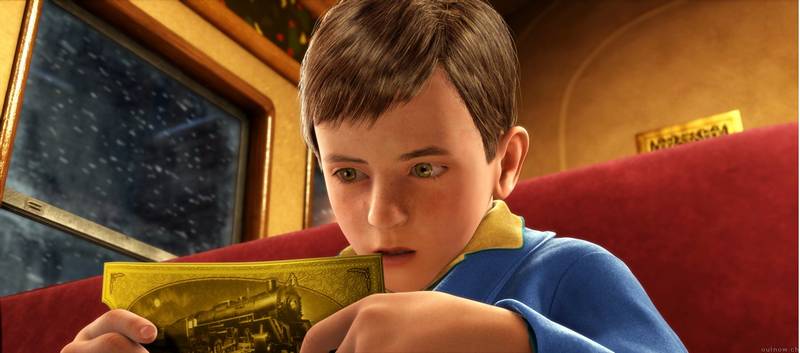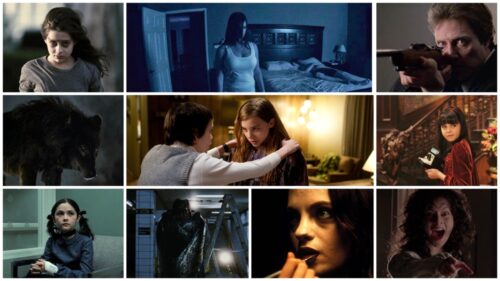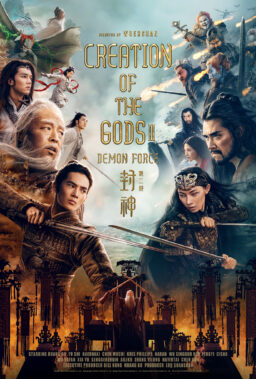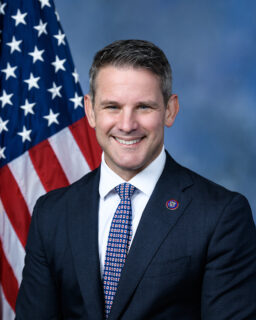Ebert’s Best Film Lists 1967 – present
Spike Lee’s biography of the black nationalist leader was one of the great screen biographies, celebrating the sweep of an American life that bottomed out in prison before its hero reinvented himself. The movie made two points that needed making: (1) Malcolm gave voice to painful truths that were impolitic for mainstream leaders to utter; and (2) he was a strong role model who began on the streets and through application of his intelligence, will and courage, became someone who made a difference. Denzel Washington’s performance in the title role makes him a front-runner for the Oscar. Aging more than 20 years in the role, he gave us the entire canvas of a man’s lifetime, from orphan to street hoodlum, from prisoner to self-taught preacher to political leader. Lee’s visual style mirrored these changes. It was lush and romantic in the youthful days in Harlem, stark and antiseptic in prison, sharp-edged and fast-moving afterward.
In a time when political currents are moving quickly, Lee is one of the few American filmmakers with the clout and the will to make a controversial film like this. Many of his critics are really responding, I think, to his abrasive public personality. Think anything you like about Lee, but listen to his films and you will find they speak for themselves, clearly and with a fair mind.
This was one of the year’s sleepers, a small but skillfully crafted action picture that nearly didn’t get a theatrical release at all. Director Carl Franklin’s film, from a screenplay by Billy Bob Thornton and Tom Epperson, began with a group of drug murders in Los Angeles, and then followed three fugitives on the road to Arkansas, where they are awaited by the local sheriff, two LA cops and memories from the past.
The movie never follows ordinary crime formulas. The story continues to build and surprise us, right up to the poetic last shot. Watching “One False Move,” I realized how so many action pictures cop out at the end, using a chase scene or a shoot-out as a substitute for an ending. How much more suspenseful it is in this film, when the “chase” depends on whether a small child can remember the right road, and when the shootout is a test of will, not marksmanship.
This was the year’s most literate and civilized film, based on E.M. Forster’s novel of two families and an old country house that seemed to embody the best of their values. Emma Thompson starred as Margaret Schlegel, who marries after everyone has given her up as a spinster. Her husband, Henry Wilcox (Anthony Hopkins), is a banker whose first wife (Vanessa Redgrave) has died. But before she died, she’d formed an enormous respect for the younger woman, and in a deathbed coda to her will, left her Howards End, the country house that represented what she held sacred. Henry destroys the coda, but it is ironic that Margaret may get the house anyway — and inherit the wife’s values, as well. The movie was made by the team of director James Ivory, producer Ismail Merchant and writer Ruth Prawer Jhabvala, who do not shy away from outrage, as when Margaret’s hot- blooded sister, Helen (Helena Bonham Carter), cries out at the hypocrisy of a society that allows Wilcox to have one standard for others and another for himself.
This film was a magical treasure from Australia, a sleeper that won the hearts of those few who were lucky enough to see it. Not many movies make you really, deeply care about the decisions the characters make — care about them as if they were your own children or friends. This one did.
The movie is about two teen-agers at private schools in Australia in the 1960s, a white boy and an African girl, who fall in love and do a little growing up, both at the same time. The boy is Danny (Noah Taylor), gawky, a stutterer, who has a fine offbeat mind. The girl is Thandiwe (Thandie Newton), very pretty, very smart, the daughter of a diplomat, attracted to Danny because alone of the boys in her world he possesses a sense of humor and rebellion.
Written and directed by John Duigan, the movie shows them learning together what is important in life, and where you have to take a stand. But the movie is not all serious; parts are very funny, parts are heartwarming, and of all the movies I saw during 1992, this was the most purely entertaining.
Here was the year’s most surprising and intriguing movie, a film by Neil Jordan that, like a Hitchcock classic, played with our expectations in order to confound them. “The Crying Game” begins in Northern Ireland, with an IRA man (Stephen Rea) guarding a kidnapped British soldier (Forrest Whitaker). We think the movie will tell an IRA story, but no: Before long, the IRA man is in London, living under an assumed identity, and he looks up the girlfriend of the soldier. Her name is Dil (Jaye Davidson), and she is not like the other girls he’s met. She has a dry, sardonic humor, and an independence that he likes.
Then the movie changes course again, and yet again, as their relationship grows more complicated and the IRA reappears with a half-baked assassination scheme. Everything leads to a final scene that will have you laughing while you agree that, yes, it is absolutely perfect. Because the movie depends so much upon surprise, don’t let anyone spoil your discoveries.
Louis Malle’s version of the best-selling novel is one of the best films ever made about heedless erotic obsession. Like “Last Tango in Paris,” it is about a man who is able to concentrate all of his needs into one obsession, and project it upon a woman. That she is equally obsessed sets them up for tragedy — since the young woman is engaged to marry the man’s son. Jeremy Irons and Juliette Binoche co-star in the movie, which opens with the most extraordinary scene of eroticism I can remember. She meets him at a cocktail reception and introduces herself as his son’s fiancee. He greets her politely, and then the conversation comes to a total halt and a charged silence grows as they find themselves staring into each other’s eyes much longer than society allows in such cases.
There is not much actual sex in the movie, and very little nudity; the fact that the film was originally rated NC-17 is not simply an indictment of the twisted rating system, but also a tribute to Malle’s ability to make a film about people, not simply bodies.
Another film of erotic obsession and madness, as different from “Damage” as sun from shadow, from the French director Patrice Leconte, whose “Monsieur Hire” was one of the best films of 1990. This time he balanced bittersweet fantasy and madness in his story of a man (Jean Rochefort) who becomes entranced at an early age with the plump hairdresser in his village. Her skin is so ripe, her powder smells so musky, the valley of her breasts is so shocking when glimpsed as she leans over the lad to shampoo him, that he can only be happy by marrying a hairdresser and adoring her. He finds one to adore (Anna Galiena). They live happily, almost ever after, above her sweet-smelling shop, and he spends his days blissfully watching her perform haircuts, perms and shampoos.
“The Hairdresser's Husband” is as charming and inconsequential as the silly pseudo-Egyptian dance the husband performs, when sheer giddiness overtakes him. It is so light and whimsical it seems to have no weight at all, until it ends and you start thinking about it, and realize how elusive happiness is, how it must be treasured every single day that we are granted it.
Robert Altman’s screen version of the Michael Tolkin novel was a knife-edged satirical portrait of modern Hollywood. From the long opening shot, which in its own way retraces all of screen history, Altman shows an industry where the executives lead privileged lives on the burial mounds of their betters.
Tim Robbins plays one of those fortunates, a studio executive who is under pressure at home and on the job, and who starts getting death threats from a writer he once apparently wronged. His attempt to do something about the threats leads to a murder, and for a time it looks as if justice will be done, but some people lead lucky lives and others do not. The movie includes a great original character, an Icelandic beauty played by Greta Scacchi, and cameo performances by what seems like half of Hollywood. It’s rare for the movie industry to make movies that are uncompromised in their sarcasm and savagery, and strange that when it does, the target is often Hollywood itself (“Sunset Boulevard,” “The Big Knife”).
Clint Eastwood’s offbeat, elegiac Western is the one that almost got away — for me, that is. Movie critics claim they are not influenced by the distractions of everyday life, but I confess that when I saw this movie for the first time, on the eve of my impending marriage, my concentration was not all it should have been. I liked it, all right, but I didn’t really comprehend it. I viewed it again a week ago in a more composed state, and was able to see it as an uncommonly intelligent and beautiful film about the death of a way of life.
Eastwood stars as a man who was once a savage killer, especially when he drank. He has retired to family life on a farm, but after his wife dies he is lured into one last payday, a $1,000 bounty put up by some prostitutes for the murder of a sadist who disfigured one of them.
The movie is filled with violence, but is about the end of violence, about the exhaustion of gunfighters and the corruption of the frontier. The Eastwood character is able to perform one more time up to his expectations, and then retires. And Eastwood the director puts many of its shots in gloom and shadow, showing the Old West at the end of its day. The screenplay by David Webb Peoples has dialogue as spare and evocative as Hemingway.
From the early films of Scorsese through “Blue Collar,” “Fingers” and “Reservoir Dogs,” Harvey Keitel is an actor willing to take a performance right to the edge. But rarely does an actor go as far as Keitel goes in “Bad Lieutenant,” the blood-curdling story of a few days in the life of a vile New York cop whose drug addiction is out of control, and whose values can be summarized in two words: Me first.
Directed by Abel Ferrara, the bad boy of high-caliber exploitation (“Ms. 45,” “China Girl,” “King of New York”), the story shows Keitel crashing and burning during a spree of theft, drug abuse, violence and betrayal. The movie opens with the lieutenant shouting at his kids, and ends after he has cried out in despair against the universe. Along the way he hallucinates encounters with Jesus, and is redeemed by a nun who forgives her rapists; it’s all overwrought and excessive, but it works, because Keitel and Ferrara have the courage of their excesses.
At film festivals, jurors often award a “special jury prize,” which is not quite first prize but not quite second prize either, for brilliant works that are hard to classify. This year, acting as a one-man jury, I would like to award that prize collectively to four of the year’s remarkable documentaries: “Brother's Keeper” This extraordinary film tells the story of four elderly brothers in central New York, who live in a rundown cabin and work a marginal farm until one of them is found dead in his bed, and another is charged with the murder by authorities who seem unable to read the situation and lack all common sense. The local people spontaneously spring to the defense of the defendant; they know, if the state’s attorney doesn’t, that he is not competent to be interrogated with a lawyer, and that his rights were violated. Soon the case becomes a regional cause, pitting a populist sense of fair play against a soul-dead bureaucracy. This is one of the most compelling, moving films I’ve seen. “American Dream” Barbara Kopple, who won the Oscar for “Harlan County, USA,” returned again to the American labor movement for this story about the Hormel strike in Austin, Minn. Here there are no easily assigned right and wrong roles. The local union is probably unrealistic not to accept a company offer; its national executive believes so, and disowns the resulting strike. But what are we to make of Hormel, which locks out its workers and then goes through the charade of “closing” a plant only to reopen it with scabs working for shockingly low wages. The original strikers show amazing courage, but are not good strategists. The movie becomes a portrait of the profit-driven 1980s, in which even profitable companies preferred inflated profits to simple human decency. “At The Max” Without question, the best rock documentary ever made, filmed during the most recent world tour of the Rolling Stones and projected on the five-story-high screens of IMAX theaters, with awesome surround sound. If you never go to rockumentaries — if you, indeed, never go to rock concerts at all — see this film to understand at the base of your spine what modern concerts are all about. A view so good, even Mick Jagger said he saw things he’s never seen during a concert. “35 up” This is the fifth installment in an ingenious documentary series that began when the participants — a cross-section of British society — were all 7 years old. Every seven years since then, director Michael Apted has visited them, asking for a progress report on their lives, their happiness, their expectations. What is inescapable, as the subjects march toward middle age, is that the child IS indeed father to the man: In the eyes and plans of 7-year- olds, we get a fair prediction of how their lives will turn out.
Rounding out the top 20, here are my next 10, alphabetically: John Mellancamp’s directing debut was in the subtle, intelligent “Falling From Grace,” and he starred as a country singer who can’t go home again. James Foley’s “Glengarry Glen Ross,” based on the David Mamet play and set in a forlorn, bitter real estate office, was packed with great acting. Paul Schrader’s “Light Sleeper” starred Willem Dafoe and Susan Sarandon as Manhattan drug dealers near the end of their ropes, and tired of other people’s needs. George Miller’s “Lorenzo's Oil” stars Susan Sarandon and Nick Nolte as parents of a dying child, who take medicine into their own hands when the doctors seem much too complacent. Mira Nair’s “Mississippi Masala” showed us an America we rarely see, of Indian immigrants from Uganda running a motel in the Deep South, where their daughter falls in love with a local black man. John Sayles’ “Passion Fish” starred Mary McDonnell and Alfre Woodard in the collision of two strong-willed personalities: one a paraplegic, one her nurse. Jocelyn Morehouse’s “Proof” looked at a true original, a blind man who takes photographs and then asks his friends to describe them — so he can catch them lying. Howard Franklin’s “Public Eye” featured great work by Joe Pesci and Barbara Hershey in the story of a 1940s tabloid photographer and a club owner; Zhang Yimou’s “Raise The Red Lantern” entered the hermetic politics of the mistresses of a rich Chinese merchant; Neil Jiminez’s “Waterdance” was the honest, humorous autobiographicaory of a writer who is paralyzed in an accident, and has learn all over again how to live.

